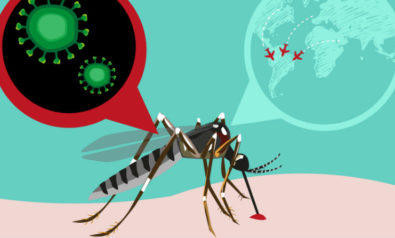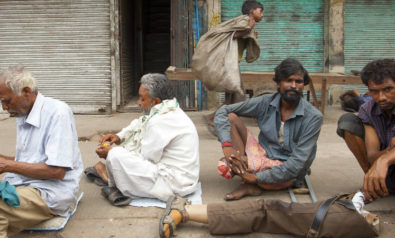On average, people are living longer than before, but they still suffer from diseases because of new pathogens, increased pollution and poor life choices.
Background
Human beings generally like to live. Good health enables people to live long and fulfilling lives. The Internet has multiple definitions of health and good health. Yet the most commonly used definition continues to be the World Health Organization’s (WHO) version, which defines health as “a state of complete physical, mental and social well-being and not merely the absence of disease or infirmity.” The United Nations (UN) has declared that ensuring healthy lives and promoting well-being for all is one of its Sustainable Development Goals (SDG).
By many indices, human beings have never been healthier. Life expectancy has shot up, infant mortality has fallen, communicable diseases are under control, people are taller if not stronger than earlier generations and modern medicine has found cures for diseases that were debilitating until not too long ago. In the last 15 years alone, the number of people newly infected by HIV each year has fallen from 3.1 million to 2 million, and more than 6.2 million people have survived malaria.
However, the world is not the picture of good health yet. The UN points out that over 50% of South Asian children under five are stunted. In Sub-Saharan Africa the figure is 40%. The two main reasons for stunting are hunger caused by poverty and repeated illnesses caused by lack of clean water. Stunted children suffer lifelong health problems, including cognitive damage. Even today, hundreds of millions continue to fall short of what the WHO considers good health.
The specter of new communicable diseases threatens millions, especially those who are marginalized and vulnerable. The Ebola outbreak that hit West Africa in March 2014 demonstrates how diseases can spread very quickly in a crowded hyper-connected world of over 7 billion people. In 2003, the severe acute respiratory syndrome (SARS) spread widely and terrified not only East Asia, but also the rest of the world.
Old communicable diseases such as malaria, HIV, polio and tuberculosis continue to pose risks to nearly 50% of the world’s population that resides primarily in the poorest parts of the world. Malaria still accounts for over 580,000 deaths every year, the majority of which are in Sub-Saharan Africa where the disease kills a child every minute. In 2013, more than 145,000 young children died of measles, making it about 400 deaths every day or 16 deaths every hour. Polio has recently reemerged in areas that had been polio-free for years. About 37 million people suffer from HIV/AIDS, and 70% of them are in Africa.
Other diseases are arguably a bigger menace today. The UN points out non-communicable diseases (NCD) now cause 63% of all deaths worldwide. Chronic and catastrophic conditions such as cardiovascular diseases, cancers, chronic respiratory problems and diabetes often push households from poverty to deprivation in poorer parts of the world, which are expected to lose $7 trillion to these four maladies by 2025. The losses NCDs cause in richer economies are exponentially higher.
Why Does Health Matter?
Health matters because it is both a human right and a universal aspiration. Health and well-being are now increasingly in focus not only in poorer countries, but also in rich ones. The United States spends 17.1% of its $17.5 trillion GDP on health care, yet rich Americans do not live longer or healthier lives than poor Cubans. Consumption in the 2000s was four times the amount consumed in the 1990s. The latest findings of the WHO have revealed that processed meats cause cancer. Sedentary urban lifestyles amplify the terrible consequences of poor diets.
Health and well-being are challenging goals for any society. Merely throwing money at curing diseases does not lead to better lives. What people eat, how they live and what they do on a daily basis makes a difference. Just as Sub-Saharan Africa and South Asia suffer from a lack of food, the US suffers from calorie-rich and nutrient-poor food. With the spread of fast food and fizzy drinks, this American problem is now a global one.
Apart from lifestyle choices such as healthier diets and regular exercise, the big challenge for improving health and well-being is meeting the divergent demands of coverage and cost. For instance, to lower stunting in poorer countries, someone will have to provide food and clean water to those who lack them. Who will foot the bill? Will it be national governments, international institutions or philanthropists like Bill Gates? How does one ensure that costs do not spiral out of control as in the US?
There are other important practical and moral questions. If health and well-being are a universal right, then do people have a duty to live healthily? Who will care for aging populations around the world? Is it families, governments or businesses? Is it right for some people to have gold-plated health care and for others to live out stunted brief lives with little or no access to medical attention? Who fights the next global pandemic? Who takes care of people suffering from health problems thanks to pollution?
These tricky questions pertaining to health and well-being are now squarely on the public agenda. In the US, Obamacare is expanding coverage even though it is doing little to control spiraling costs. In Europe and Japan, falling birthrates and aging populations are putting pressure on health systems that have worked fairly well for the last few decades.
As The Guardian points out, no health care system is perfect, but it is high time for a global conversation on the issue. Distilling some points of praxis and practice from around the world would enable people to learn from each other and create better systems that achieve better outcomes. This is important because health is truly wealth.
The views expressed in this article are the author’s own and do not necessarily reflect Fair Observer’s editorial policy.
Photo Credit: David Orcea / Shutterstock.com
 We bring you perspectives from around the world. Help us to inform and educate. Your donation is tax-deductible. Join over 400 people to become a donor or you could choose to be a sponsor.
We bring you perspectives from around the world. Help us to inform and educate. Your donation is tax-deductible. Join over 400 people to become a donor or you could choose to be a sponsor.
For more than 10 years, Fair Observer has been free, fair and independent. No billionaire owns us, no advertisers control us. We are a reader-supported nonprofit. Unlike many other publications, we keep our content free for readers regardless of where they live or whether they can afford to pay. We have no paywalls and no ads.
In the post-truth era of fake news, echo chambers and filter bubbles, we publish a plurality of perspectives from around the world. Anyone can publish with us, but everyone goes through a rigorous editorial process. So, you get fact-checked, well-reasoned content instead of noise.
We publish 2,500+ voices from 90+ countries. We also conduct education and training programs on subjects ranging from digital media and journalism to writing and critical thinking. This doesn’t come cheap. Servers, editors, trainers and web developers cost money.
Please consider supporting us on a regular basis as a recurring donor or a sustaining member.
Support Fair Observer
We rely on your support for our independence, diversity and quality.
Will you support FO’s journalism?
We rely on your support for our independence, diversity and quality.


















